Florida Tech, CS Formal Languages and Automata (Fall 2023)
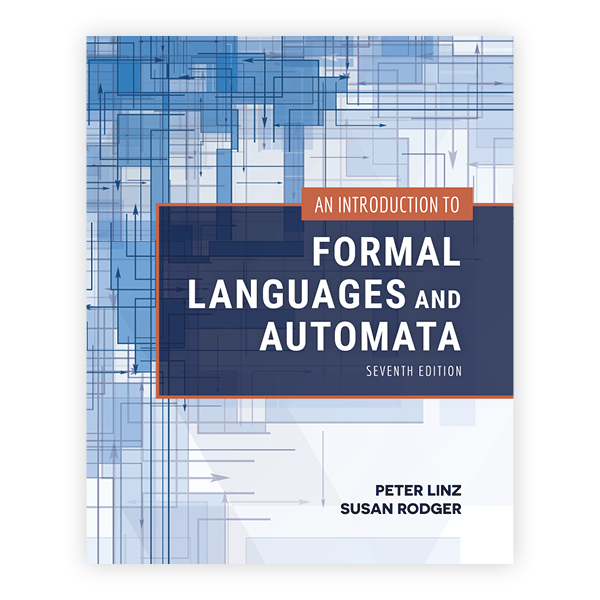
An Introduction to Formal Languages and Automata 9781284077254
Formal language Whereas arithmetic studies numbers and the relations over them, formal language theory is based around the study of sets of strings. Fa-miliar to computer scientists, a string is simply a nite sequence of tokens from some nite alphabet . For example, say = fa;bg. Then ab, aabb, and bbaba are examples of strings over .

PPT Formal languages and automata theory PowerPoint Presentation, free download ID6784445
The following documents outline the notes for the course CS 162 Formal Languages and Automata Theory. Much of this material is taken from notes for Jeffrey Ullman's course, Introduction to Automata and Complexity Theory, at Stanford University. Note: Some of the notes are in PDF format. Viewing these files requires the use of a PDF Reader .

formal languages and automata theory iitg
Automata theory is closely related to formal language theory. In this context, automata are used as finite representations of formal languages that may be infinite. Automata are often classified by the class of formal languages they can recognize, as in the Chomsky hierarchy, which describes a nesting relationship between major classes of automata.

Formal Languages and Automata Theory Diagram Quizlet
Knowledge of automata theory and formal languages is crucial for understanding human-computer interaction, as well as for understanding the various processes that take place when manipulating knowledge if that knowledge is, indeed, expressed as sentences written in a suitably formalized language. In particular, it is at the basis of the theory.
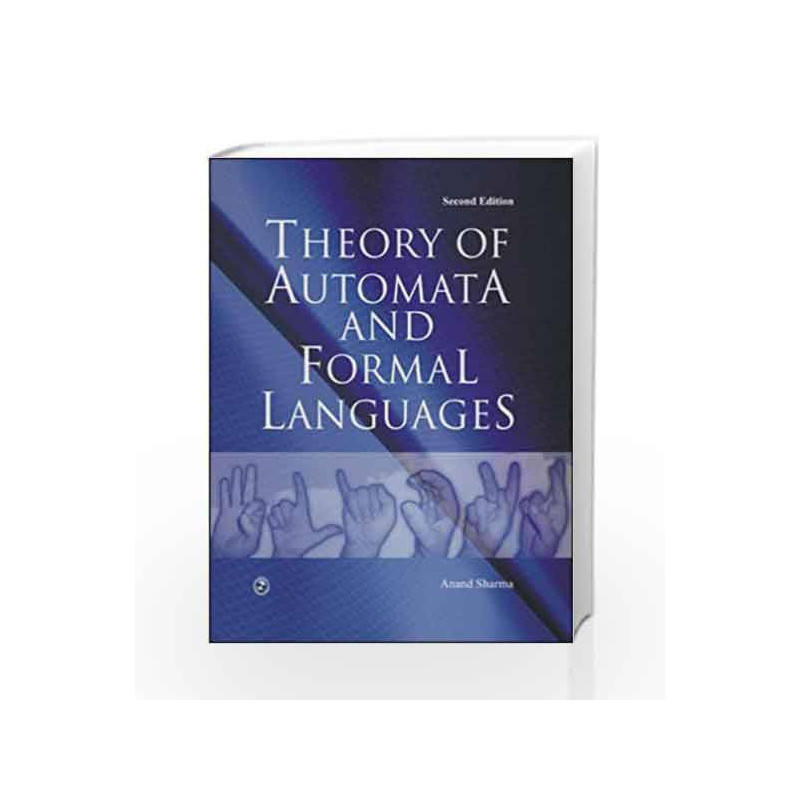
Theory of Automata and Formal Languages by Anand SharmaBuy Online Theory of Automata and Formal
Formal Languages and Automata Theory Stephen Cole Kleene (1909-1994) was born in Hartford, Connecticut is an academic family. His father was a professor of Economics and mother a poetess. He graduated from Amherst College in 1930 and received his Ph.D, in mathematics from Princeton University in 1934.

Introduction to Formal Languages and Automata Theory Lesson 1 Automata Theory Learning
Formal Languages and Automata Theory D. Goswami and K. V. Krishna November 5, 2010. Contents 1 Mathematical Preliminaries 3. Formal Languages A language can be seen as a system suitable for expression of certain ideas, facts and concepts. For formalizing the notion of a language one must cover

Formal Languages And Automata Theory eBook
Formal Languages and Automata Theory authors/titles recent submissions Formal Languages and Automata Theory Authors and titles for recent submissions Fri, 29 Dec 2023 Mon, 25 Dec 2023 Wed, 20 Dec 2023 Tue, 19 Dec 2023 Fri, 15 Dec 2023 [ total of 10 entries: 1-10 ] [ showing up to 25 entries per page: fewer | more ] Fri, 29 Dec 2023

Formal Languages and Automata Theory Buy Formal Languages and Automata Theory Online at Low
This book presents the theory of formal languages as a coherent theory and makes explicit its relationship to automata. The book begins with an explanation of the notion of a finite description of a language. The fundamental descriptive device--the grammar--is explained, as well as its three major subclasses--regular, context-free, and context.
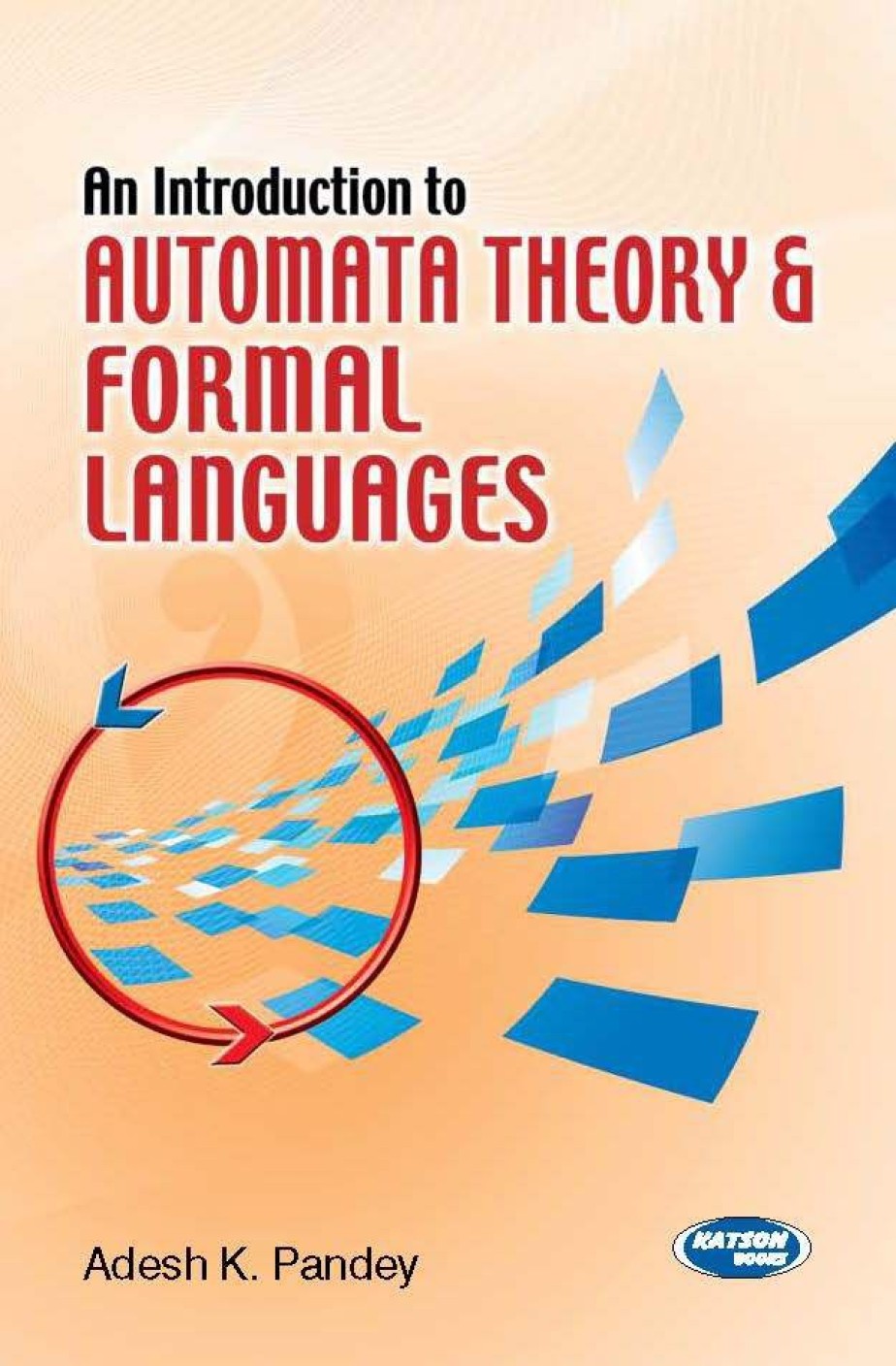
An Introduction To Automata Theory & Formal Languages Buy An Introduction To Automata Theory
In 1943 W.S. McCulloch and W. Pits investigated and studied finite-state machines and neural networks. In day today life the paradigms of finite-state constructs can be seen everywhere: textiles, traffic signal controlling, automated teller machines, automated telephone service, garage door openers, household appliances, and coin operated machines such as vending machines and slot machines.

FORMAL LANGUAGE AND AUTOMATA THEORY by S.S. JADHAV (English) Paperback Book Free 9789351642022
Introduction to the Theory of Computation Formal Languages and Automata Models of Computation Jean Gallier May 27, 2010 Chapter 1 Basics of Formal Language Theory 1.1 Generalities, Motivations, Problems In this part of the course we want to understand What is a language? How do we define a language? How do we manipulate languages, combine them?
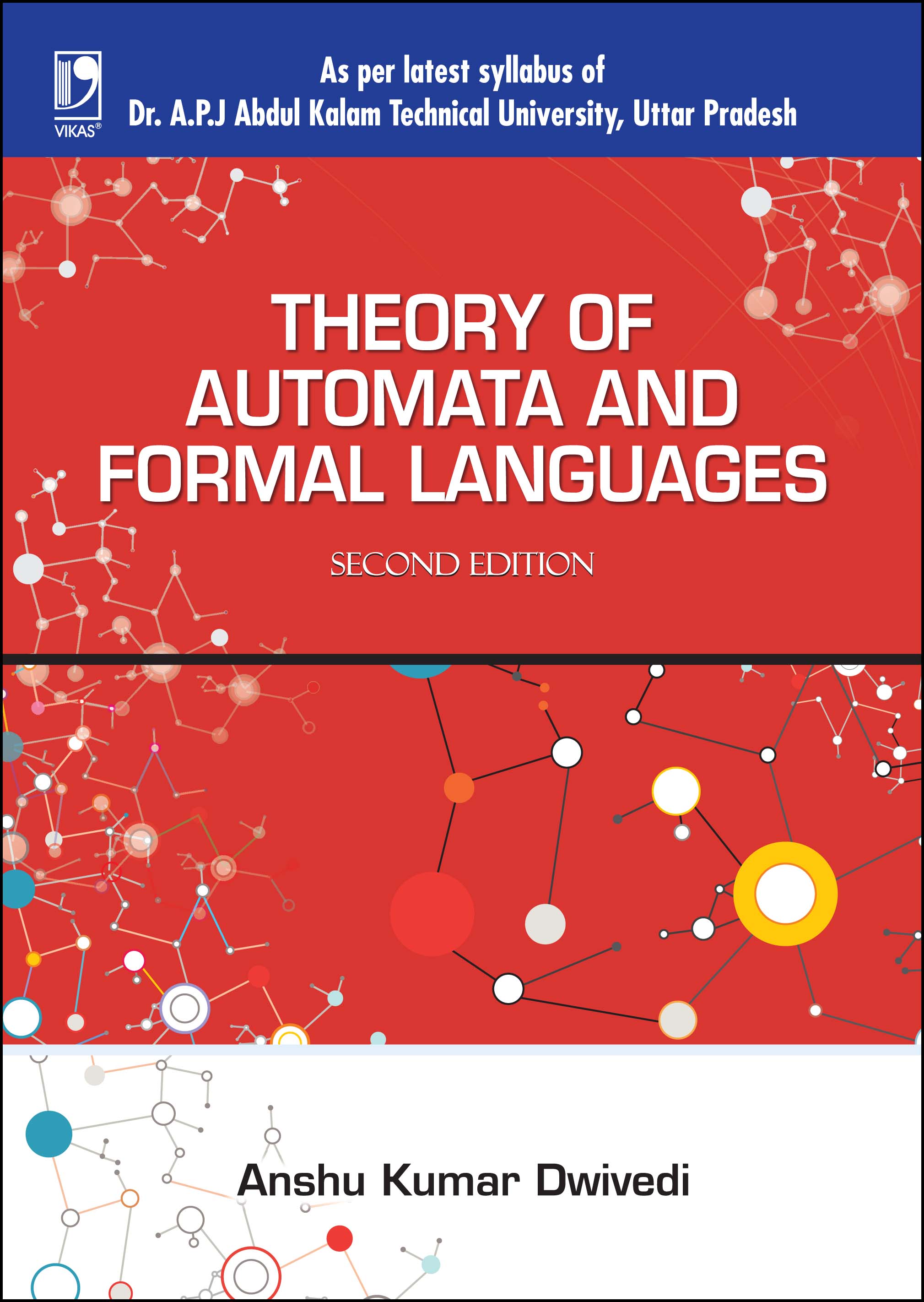
THEORY OF AUTOMATA AND FORMAL LANGUAGES By ANSHU KUMAR DWIVEDI
context free languages) • Assignments: Seven (7) or so. At least one (the review on prerequisite formal languages and automata) will be extensive. • Exams: Two (2) midterms and a final. • Material: I will draw heavily from Davis, Chapters 2-4, parts of 5, 6-8 and 11. Some material will also come from Hopcroft.
Automata Theory and Formal Languages
Title: An Introduction to Formal Languages and Automata, 7th Edition. Author (s): Peter Linz, Susan H. Rodger. Release date: February 2022. Publisher (s): Jones & Bartlett Learning. ISBN: 9781284231618. An Introduction to Formal Languages and Automata, Seventh Edition is designed for an introductory course on formal languages, automata.
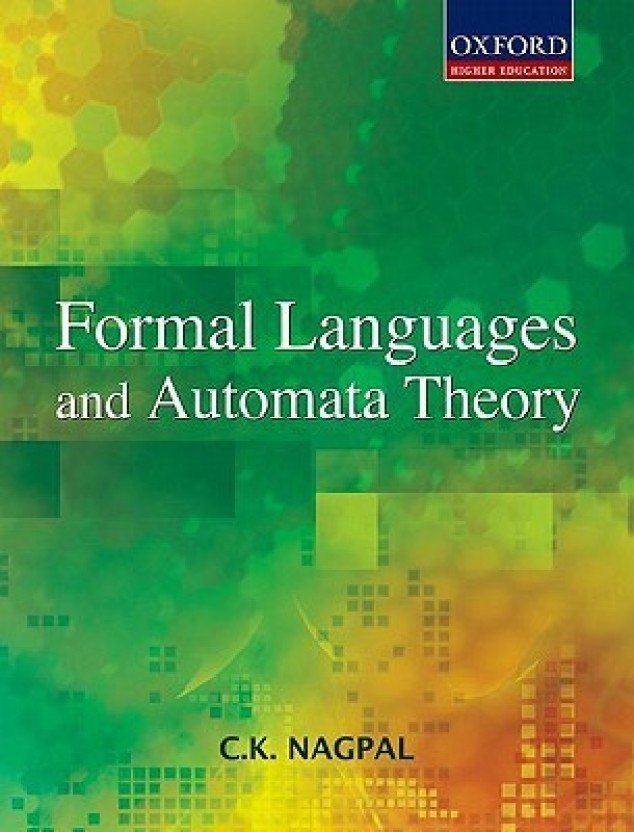
FORMAL LANGUAGES & AUTOMATA THEORY BY SUNITHA PDF
The book is a concise, self-contained and fully updated introduction to automata theory - a fundamental topic of computer sciences and engineering. The material is presented in a rigorous yet convincing way and is supplied with a wealth of examples, exercises and down-to-the earth convincing explanatory notes. An ideal text to a spectrum of one-term courses in computer sciences, both at the.
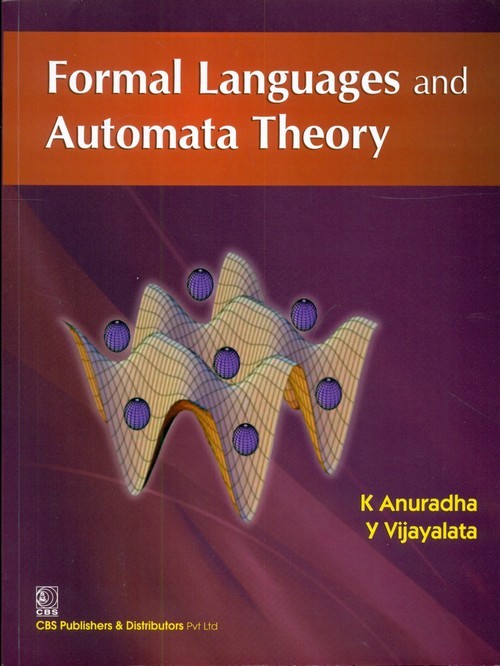
FORMAL LANGUAGES AND AUTOMATA THEORY (PB 2016) 9788123922843
Summary. In this chapter, we present some basic material from formal language theory, and we concentrate on those topics that arise and have been studied in connection with group theory. These include, for example, real-time and indexed languages, and 2-variable automata, which do not generally merit extensive coverage in textbooks on the subject.

formal languages and automata theory introduction YouTube
Automata theory is a branch of the theory of computation. It deals with the study of abstract machines and their capacities for computation. An abstract machine is called the automata. It includes the design and analysis of automata, which are mathematical models that can perform computations on strings of symbols according to a set of rules.
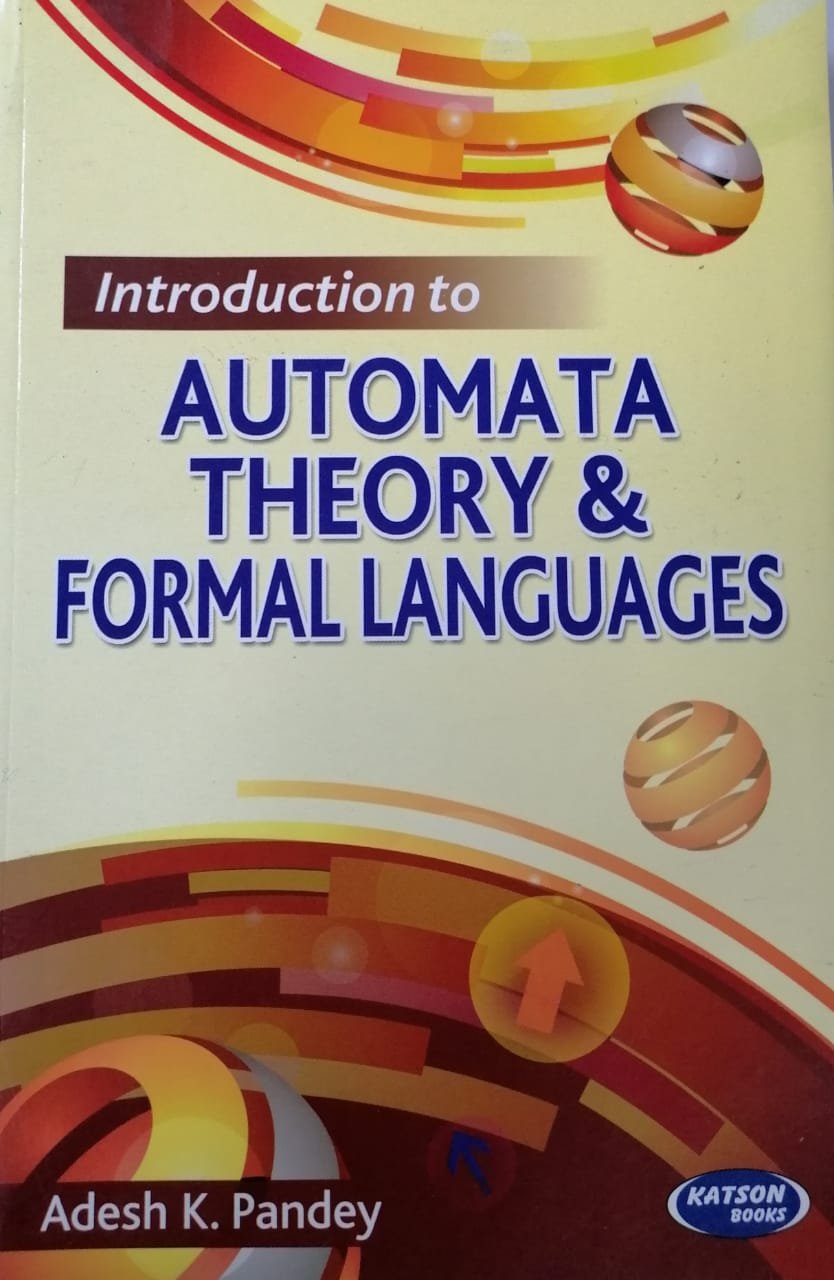
Katson Introduction To Automata Theory And Formal Languages By Adesh K Pandey » WishAllBook
Description Formal Languages and Automat Theory deals with the concepts of automata, formal languages, grammar, algorithms, computability, decidability, and complexity. The reasons to study Formal Languages and Automat Theory are Automata Theory provides a simple, elegant view of the complex machine that we call a computer.